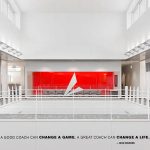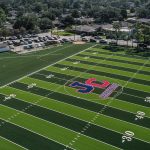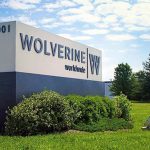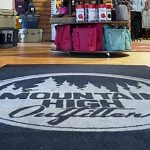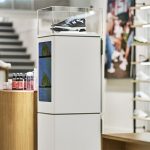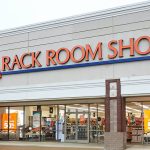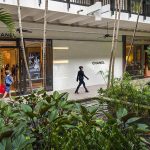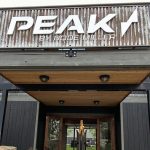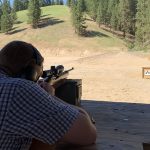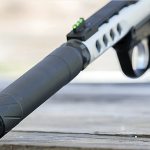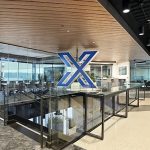After Reebok International reported third quarter earnings last year more than one analyst-and some trade media – gave Reebok International a gentle nudge to be more forthcoming about the impact that the acquisition of The Hockey Company had on the Reebok branded business. While SEW is still baffled by the companys strategy to roll THC up under the Brand Reebok business, we must applaud the visibility that the company provided this time around when reporting the 2004 fourth quarter and full year results.
One piece of the strategy is very clear though-Rbk will be a much bigger focus than THC for the coming year.
Coming off of a year when total consolidated revenues increased 8.6% to $3.79 billion – up only 1.0% when excluding the impact of THC and FX rate benefits – Reebok intends to launch a new marketing campaign around the Rbk platform that will see advertising spending jump about 30% for the year, which will put total marketing at about 12% of sales. The company had historically allocated about 11% to marketing and had spent about 11.5% in 2004. Total SG&A is expected to remain flat to 2004 levels. The campaign, which is still under wraps, will kick off in February and will see most of the marketing spend focused in the front half of the year. Chairman and CEO Paul Fireman described the effort as the “most relevant and authentic campaign” they had launched in “many, many years.”
The other key objective for the company and for Fireman is re-building the apparel business for the Reebok brand. Fireman said he was committed to putting the necessary resources against the business, which appears to be going through a global reorganization that is still evolving. Fireman threw out a few ideas on how the plan might break down, but it appears that he will roll responsibilities under three “design groups” that will have global responsibilities for categories. Performance apparel, for instance, may be driven out of the current Licensed apparel group, while another may focus on general sports apparel like fleece and warm-ups, and a third group would be focused on Rbk. He said they will pursue a strategy of “capsule selling”, creating product lines specifically for retailers, instead of for a catalog.
The emphasis on apparel comes as brand Reebok struggled with a 3.8% constant dollar sales decline in apparel and 11.5% decline in constant dollar futures for the group at year-end versus last year. Most of that futures decline came from a 19.6% constant dollar drop in International apparel futures, but both the Domestic and International businesses contributed to the 2004 sales decline.
The backlog and full-year sales issues with apparel served to offset a healthier worldwide Brand Reebok footwear business and overshadowed a stronger fourth quarter for the apparel group.
Total fourth quarter Reebok U.S. apparel sales increased 10.8% to $171.9 million, or up 5.5% to $163.7 million when excluding The Hockey Company numbers. THC apparel, which also includes equipment, delivered $8.2 million in sales in the quarter. U.S. Reebok footwear sales increased 7.3% for the quarter to $245 million, but rose 5.0% to $239.9 million when excluding $5.1 in THC skate sales during the period.
Total U.S. Reebok sales rose 8.7% for the fourth quarter to $416.9 million. Excluding $13.3 million in THC sales volume, brand Reebok sales increased 5.2% to $403.6 million.
Interestingly, Fireman said the THC deal happened after The Hockey Company approached Reebok about licensing the Reebok name. He said that whole scenario is now playing out as Rbk Hockey is launched this month, landing at retail on March 1. One person close to the launch strategy told SEW that if the NHL dropped the puck tomorrow, all jerseys would be sporting the Rbk logo.
SEW wonders how the name change will play north of the border, but sees little downside to the move in the states.
To support the product launch, Reebok has created a multi-faceted Rbk Hockey marketing campaign scheduled to launch in March. The campaign, entitled “The Switch is On,” features Rbk Hockeys new endorsees, which includes a half dozen NHL players, including Evgeni Malkin, the #2 overall pick in the 2004 NHL draft.
The company said the Rbk Hockey line features skates, sticks and protective equipment sporting new, proprietary technologies and materials never before used in hockey equipment.
“The products target the expressive, new school hockey player who pushes the limits of speed, agility and creativity on the ice,” said Matt OToole, president and CEO of The Hockey Company in a release.
In U.S. apparel, Reebok said both Licensed and Branded contributed to the sales increase. Branded sales reportedly grew despite “a substantial reduction in close-out sales”, which helped push gross margins up 900 basis points versus last year. In Licensed, fan-based product sales saw a double-digit increase for the year and saw increases in most channels. The category did see a decline in the athletic specialty channel in Q4, but the company said the NFL replica business was up 42% for the period across business.
In U.S. footwear, Reebok said the full-price, fill-in business increased 23% in the fourth quarter. Running category footwear sales increased 68% in the period. Sales of Rbk music icon footwear “more than doubled” from the year-ago period. Classics apparently continued to perform well, with worldwide sales increasing approximately 12% in the fourth quarter.
Sales to the Athletic Specialty, Sporting Goods, and Better Dept. Stores increased 13% for the period. The company said that recent NPD data reveal that the brands market share in the Athletic Specialty and Sporting Goods channels was up about 70 basis points for the 12-month period ended November 20, 2004.
Looking ahead, the brand appears to be focusing its efforts on the Pump 2.0 technology. At the NBA All-Star game in February, RBK will debut a new ATR Pump shoe that will be worn by each of its athletes including Iverson, who will get his own Pump shoe in the fall.
International apparel sales were up 26.8% for the quarter to $194.3 million, or a 17.5% gain in constant dollars. Excluding the impact of THC, fourth quarter apparel sales actually declined 1.3% in constant dollars to $165.3 million. THC apparel sales were $31.1 million for the period. International footwear sales increased 30.4% to $205.6 million in Q4, and were up 14.0% to $190.8 million when excluding THC and the FX rate benefits versus last year.
International sales for The Hockey Company were $45.9 million in the fourth quarter, with $14.8 million coming from footwear (skates) and $31.1 million coming from apparel and equipment.
Asia/Pacific experienced double-digit constant dollar sales increases in Australia, China, India, and Japan during the fourth quarter.
Latin America, which is driven by independent distributors, increased 49% for the period.
In Europe, constant dollar sales decreased about 4.0% in Q4. Sales in the U.K. were up in reported dollars, but down in constant dollars. U.K. footwear sales were up, but apparel was down for the period. Sales in France were down in both reported and constant dollars. Both the U.K. and France were said to be impacted by a promotional retail environment. Constant dollar sales increased in Austria, Belgium, Finland, Germany, Greece, Holland, Poland, and Russia.
Total company fourth quarter sales increased 15.6% to $975.1 million versus $843.6 million in the year-ago period. Excluding the impact of THC and FX rate benefits, sales improved 5.5% to $975.1 million. Constant dollar Reebok brand sales, excluding THC, rose 5.8% to 816.8 million, but increased 17.6% on a reported basis. Rockport sales increased 6.4%, or 3.6% in constant dollars, to $96.6 million from $90.8 million in Q4 last year. “Other Brands”, which includes the Ralph Lauren Footwear and Greg Norman Collection businesses, increased 5.7% to $61.7 million from $58.4 million in Q4 last year on a reported basis and rose 5.3% on a constant dollar basis. GNC reported that sales to Green Grass accounts rose 22% versus the year-ago quarter. Total sales for The Hockey Company amounted to $59.2 million for the quarter. Factory Outlet store sales comped up around 4% for the quarter.
Net income for the fourth quarter ended December 31 increased 70.4% to $47.7 million, or 78 cents per diluted share, compared to net income of $28 million, or 44 cents per diluted share in the fourth quarter of 2003. Excluding a one-time $12 million tax benefit for Q4, net income improved 27.5% to $35.7 million, or 59 cents per diluted share. Gross margin improved 30 basis points to 38.5% of sales from 38.2% of sales in the year-ago period.
For the full year, excluding the Q4 tax benefit and a one-time after-tax charge of $7 million in Q2, net income increased 19.2% to $187.5 million, or $2.98 per diluted share, versus the 2003 comparable period.
For 2005, Reebok expects to see earnings per share growth in the neighborhood of 15% to approximately $3.42 per diluted share. They see a revenue increase in the mid-single-digit range and an improvement in operating margins.

